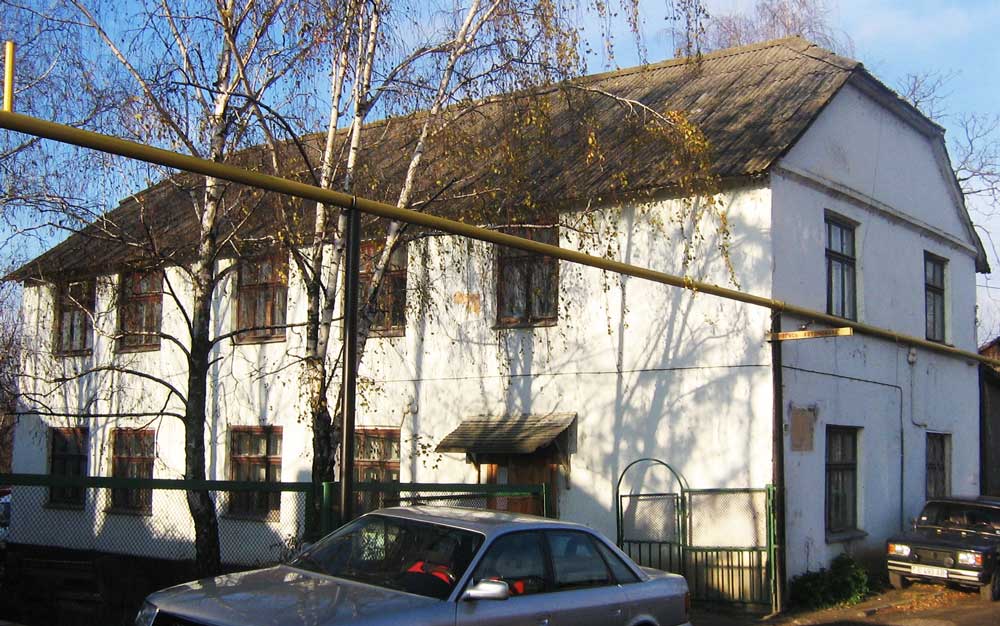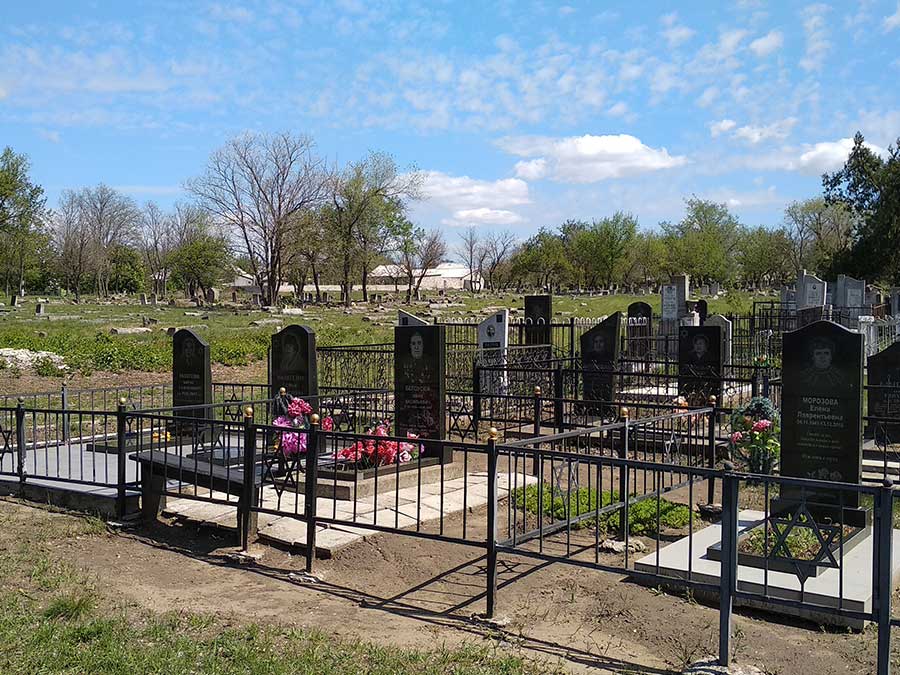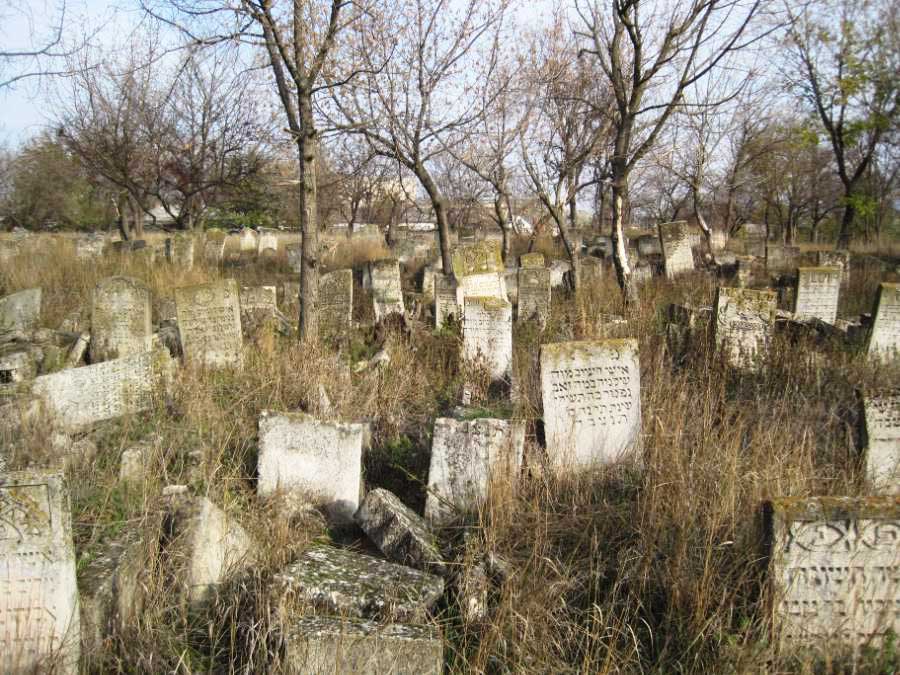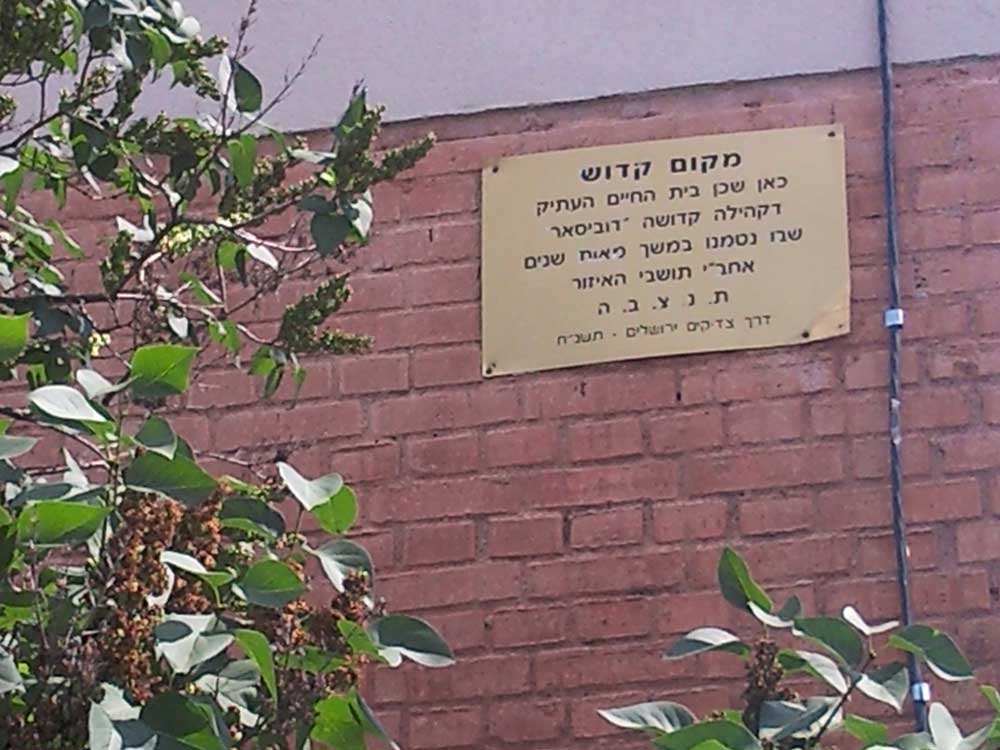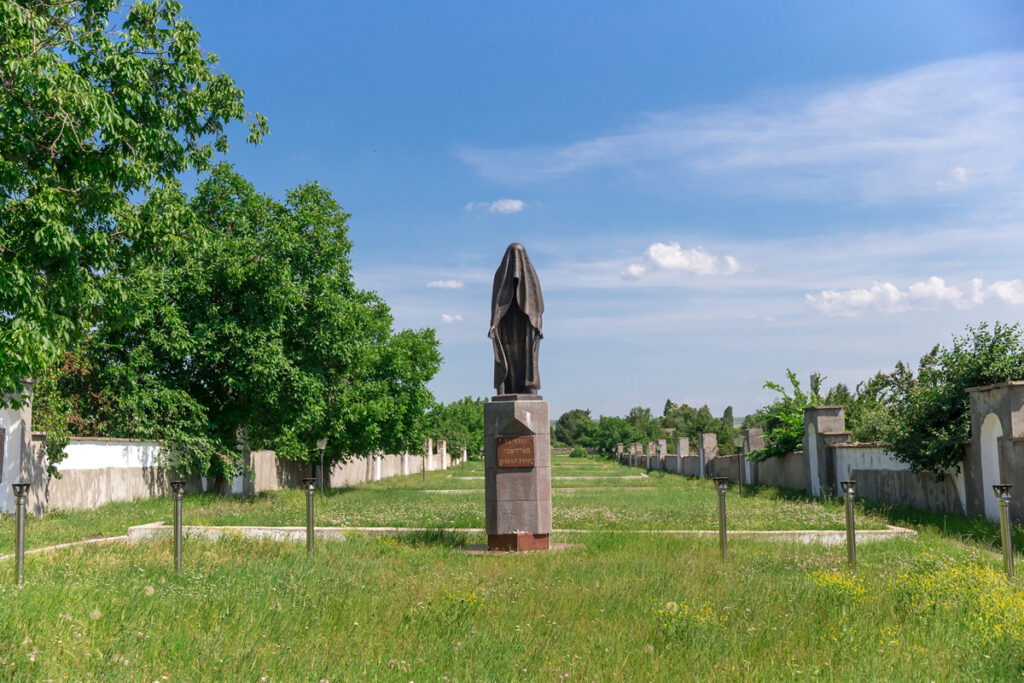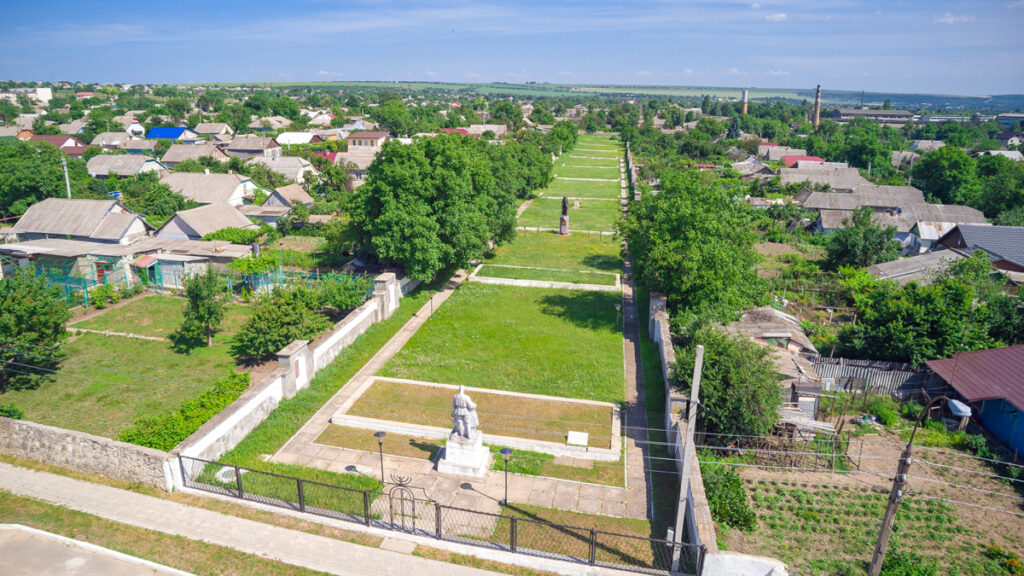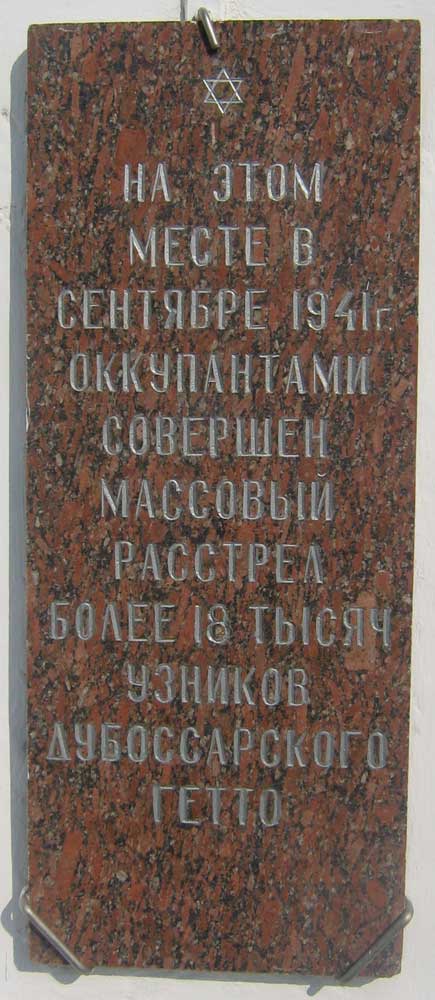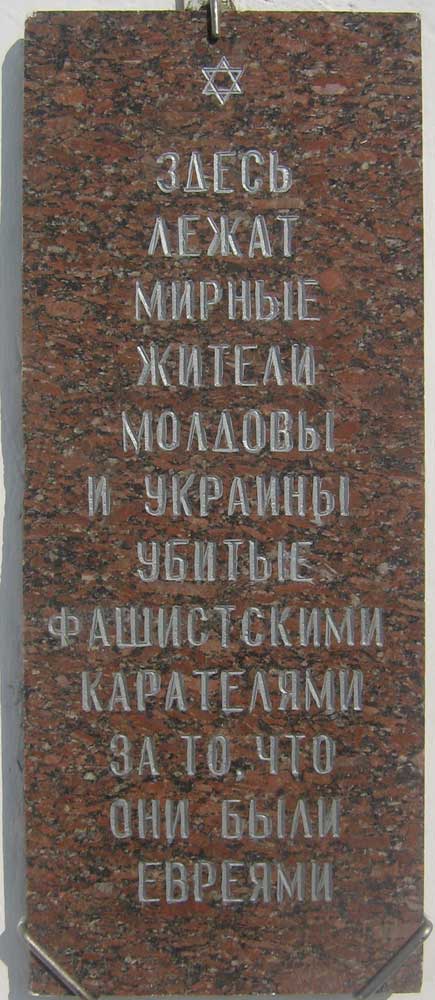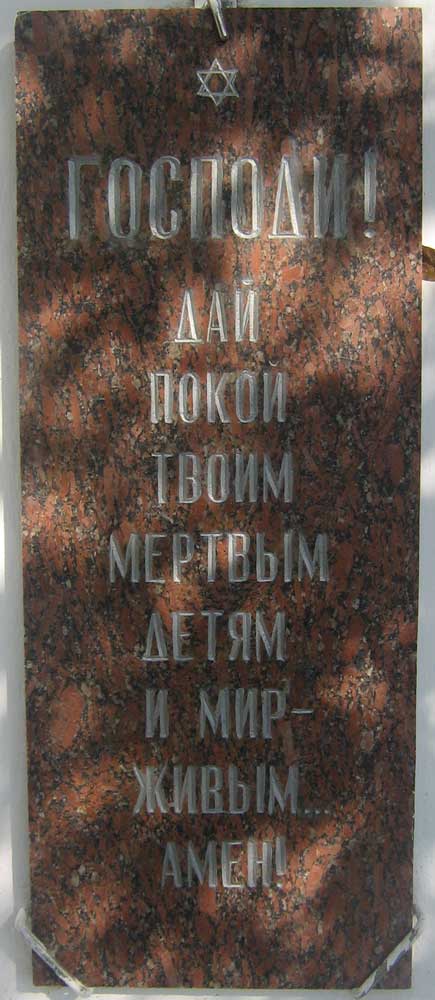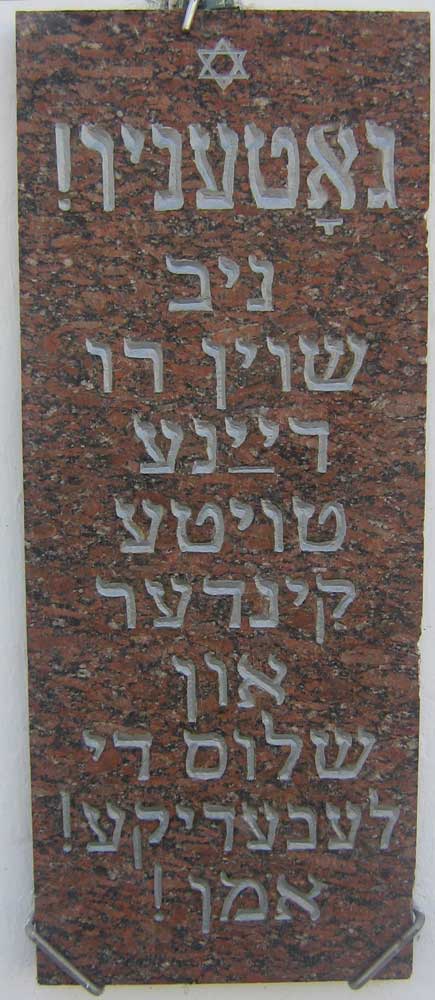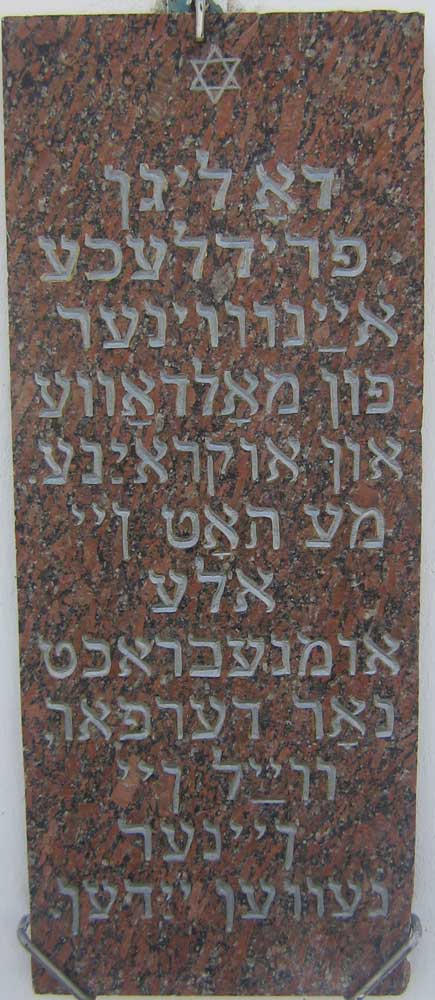Jewish community of Dubossary
One of the oldest Jewish communities in our region. There are many places in the city connected with the rich historical past of the Jews on this land: the building of the former synagogue, the Jewish cemetery, the memorial complex.

According to the information of the provincial statistical committee for 1861.
There were 7,207 inhabitants (3,931 men and 3,276 women), including inhabitants assigned to the city according to the revision: merchants - 509 (Christians 129, Jews - 380); philistines - 4.635 (Christians - 2.472, Jews - 2.163; total - 5.144) (The economic state of urban settlements in European Russia in 1861-62 Ch.P. - St. Petersburg, 1863. - P. 26).
According to the 1897 census
The population of the city of Dubossary exceeded 12 thousand people, including 55% of the Orthodox faith and 44% of the Jewish. And at the beginning of the XX century. in terms of population, the city of Dubossary was the second city of the left bank of the Dniester region (after the city of Tiraspol) - 13.6 thousand people.
In 1920–22
Thousands of Jewish refugees from Ukraine passed through Dubossary to Romania. Many local Jews joined them.
In 1926
3630 Jews lived in Dubossary (81% of the total population).
At the beginning of the 20th century, the Talmud Torah (a religious educational institution for boys), nine heders (a basic elementary school in the traditional Jewish education system) and four private Jewish schools operated in the Dubossary Jewish community.
In 1941
The number of Jews increased to 8,000. In June 1941, about 1,300 Dubossary Jews went to the Red Army, and some to a partisan detachment led by J. Guzinyatsky and A. Darfman.
In the 1960s
According to some reports, about 150 Jews lived in Dubossary. Through their efforts, in 1956, with funds raised both in the USSR and abroad, a memorial “In memory of 18,500 Soviet citizens of the city of Dubossary” was created at the site of the execution of Jews in Dubossary with texts in Russian and Moldovan.
The inscription in Hebrew, as well as an indication that the victims of Nazism were Jews, were banned by the Soviet authorities.
The building of the former synagogue.
Address: Dubossary, st. Kirov, 197.
The two-storey building was built in the first half of the 19th century with private donations from the Jewish community. A small building, a mikvah, for ritual ablution has been preserved in the courtyard. The synagogue functioned according to its intended purpose until 1933. After nationalization and to this day, state organizations are located in the building.
Jewish cemetery.
Address: Dubossary, st. Lomonosov, 25.
One of the oldest cemeteries in the city, there are about 2,000 old burials, as well as 250 burials that were made after 1945. Of the old tombstones, 150 have been identified. The oldest burial is dated 8 Adar 5587 (Jewish calendar), which corresponds to March 7, 1827 of the Gregorian calendar.
Destroyed old Jewish cemetery.
Address: Dubossary, st. Kotovsky, 82
The old (second) Jewish cemetery was destroyed in 1950-1955 during the construction of a hydroelectric power station on the Dniester River in Dubossary. Now on the site of the cemetery is the building of DOSAAF (autoclub). According to the stories of an old-timer, one of the oldest burials in this cemetery dates back to 1616. The city knew the legend that the bride and groom who died on their wedding day were buried in the grave. A sign outside the DOSAAF (autoclub) building on the site of the old Jewish cemetery reads:
Holy place. Here is the ancient cemetery of the holy community "Dubossary", where our Jewish brothers, residents of the region, have been buried for hundreds of years. May their souls be bound in the knot of life. Derech Tzadikim Jerusalem 5758 (1997/98)
Memorial complex "Victims of fascism"
Address: Dubossary, st. Z. Kosmodemyanskoy, 22a
Pain and sorrow permeate the heart of every inhabitant of Dubossary when it comes to the Holocaust - the genocide of European Jewry during the Second World War.
More than 18,500 doomed residents of the cities of Chisinau, Tiraspol, Bendery, Orhei, Grigoriopol, Dubossary, Rybnitsa, Balta, Kotovsk, Red Windows and other regions of Moldova and the Odessa region of Ukraine remained lying in 11 mass graves. All these people were shot by the Nazis just because they were Jews.
This place, called Dubossary Babi Yar, is the largest mass grave of Holocaust victims in the entire nearby territory of Transnistria, Moldova and the Odessa region of the Republic of Ukraine. The total area of the memorial complex is about 5800 square meters.
The author of the memorial project is the famous architect S.M. Shoikhet.
On a pedestal 2.5 meters high there is a bronze figure 2.5 meters high. The author of the layout of this sculpture is the famous sculptor Lazar Dubinovsky, and the sculptor Sergey Ganenko brought it to life. The sculpture represents a praying Jew dressed in a tales (prayer robe). To the question "For what?", engraved on a granite slab in three languages - Russian, English and Hebrew, we will never be able to answer. Six torches of eternal flame, located side by side, symbolize 6 million Jews killed during the Holocaust. The creation and installation of the monument could not have taken place without the sponsorship of the philanthropist from St. Petersburg, Avram Goldemberg. The opening of the monument took place in 2017.
At our Memorial Complex "Victims of Fascism", thanks to the enthusiasm of many, now deceased, active members of the Dubossary Jewish community, 3000 names were established and immortalized on granite slabs. It is impossible to read this endless list of ruined lives and words carved on granite slabs in Yiddish and Russian without shuddering.
Address: Dubossary, st. Lomonosov, 30
Chairman: Ukshtein Ozias Borisovich
Telephone: +373 777 40042
